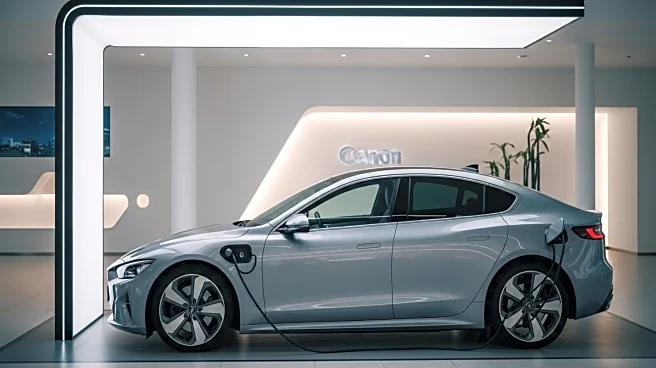What's Happening?
Tesla has reported a 7% increase in sales for the third quarter, surprising analysts who had anticipated a decline. The electric car manufacturer benefited from a surge in consumer purchases driven by the impending expiration of a $7,500 federal tax credit for electric vehicles on September 30. This increase follows two quarters of declining sales, attributed to consumer backlash against CEO Elon Musk's political activities. Tesla's sales reached 497,099 units, surpassing the expected 456,000 units, marking a significant recovery from previous declines.
Why It's Important?
The unexpected rise in Tesla's sales highlights the significant impact of government incentives on consumer behavior in the electric vehicle market. The expiration of the tax credit could lead to a shift in sales dynamics, affecting Tesla and other automakers relying on such incentives to boost sales. This development underscores the importance of federal policies in shaping the electric vehicle industry, which is crucial for achieving broader environmental goals. The increase also suggests resilience in Tesla's market position despite controversies surrounding its CEO.
What's Next?
With the expiration of the tax credit, Tesla and other electric vehicle manufacturers may face challenges in maintaining sales momentum. The industry will likely focus on innovation and cost reduction to attract consumers without relying on federal incentives. Stakeholders, including policymakers and environmental groups, may advocate for new incentives to support the transition to electric vehicles. Tesla's future sales performance will be closely watched as an indicator of the industry's adaptability to changing policy landscapes.











